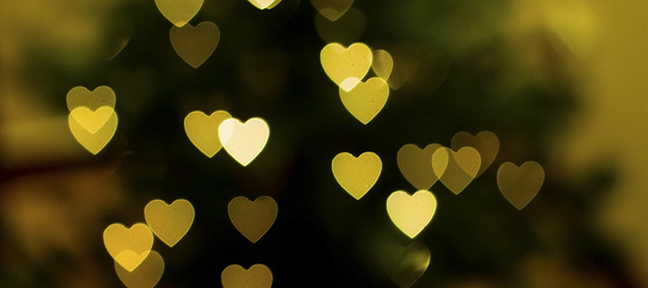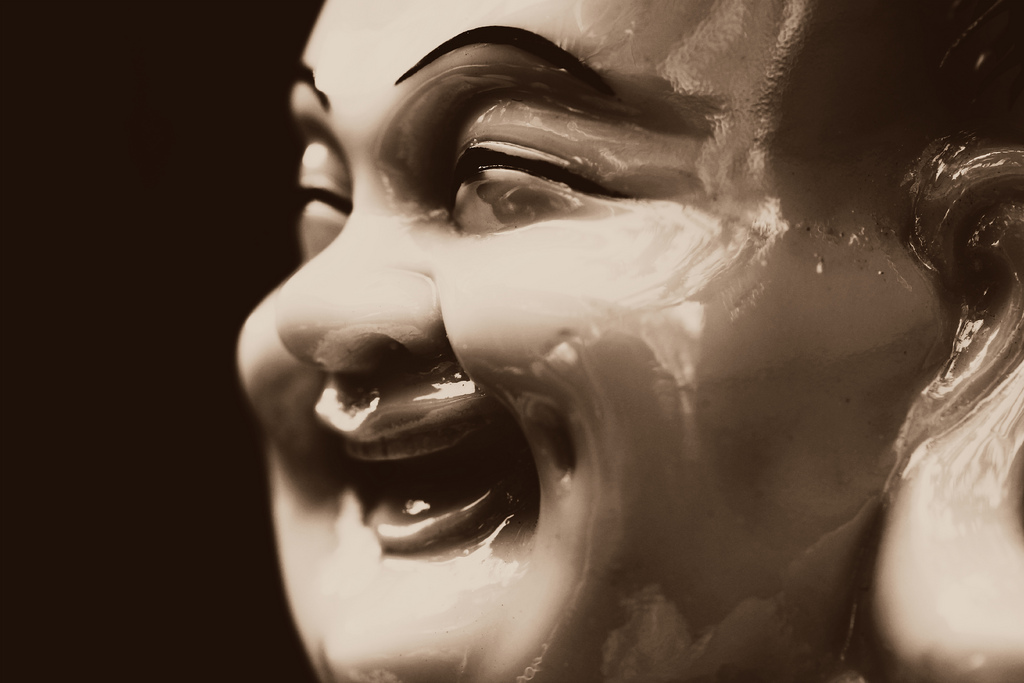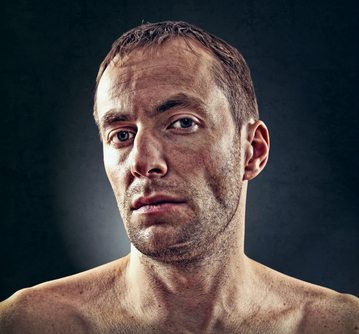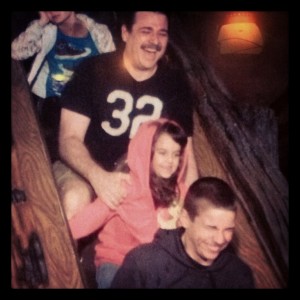Guyside: The Trick to Social Media Happiness? Spend Less Time By Doing More
I’ve found myself wondering whether social media is all it’s cracked up to be.
Sure it makes it easier to connect with people from all over the world, from Nigeria to Nicaragua and from Pakistan to Poland, but how much satisfaction and contentment are we really getting from this online craze?
Social Media And Value
It’s common these days to see people heavily engaged in social media, chatting to their friends about any topic under the sun. They’re either on Facebook or Google+, or they’re on Twitter telling the world about the strange homeless man they’ve just walked past.
But despite all of this usage that social media gets, is there a lot of value going on around here? Are there any debates as to how to solve the problems of the world, or even a genuine problem that one of their friends is going through? Better yet, how many conversations in social media do you get where at least one person feels genuinely better having had that conversation?
Social Media And Time
Let’s look at another perspective on this, look at the amount of time we spend active on social media sites. The extremists spend up to 7-8 hours a day on social networks, but I believe the average person of today spends between 1-2 hours a day.
Now, let’s say that someone spends 1 hour a weekday on social media, and 2 hours a day on weekends, chatting away with their friends and viewing the latest photos and tweets. It sounds like a ‘normal’ amount, right? Multiply each weekday by 5, and each weekend day by 2, and you’re left with a weekly social media total of 9 hours a week on social media sites.
Again, this may seem like a normal and ordinary amount for you, but let’s now look at what you’re spending those 9 hours on.
Social Media And Content
Let’s look at some of the things you can do on social media:
– Instant messaging
– Updating statuses
– Sending individual/direct messages
– Promoting yours, or someone else’s content
Looking at these items, we can certainly keep in touch with our friends, and we can keep up regular relations with our clients. This is all well and good, but take this away, and what is left? What else can you do in social media besides these afore-mentioned items?
The truth is, not a lot.
Sure, you can play games and you can ‘poke’ your friends and family, but is this really important? Even referring to what is listed above, how much time do you need to be spending there? Do you really need to spend 9 hours a week on keeping in touch with friends and clients?
Granted, some of the more important relationships in your life will warrant a longer time, but the more important relationships in our lives are also maintained outside social media, and even outside the internet. Our families and our closest friends are traditionally the ‘more important relationships’, and how many of them are based primarily on a social media network?
Take away the ‘core relationships’ of your life and you’re left with those relationships that are standard, such as those with our clients and the rest of our social circle. Do you really need, or want, to be spending 9 hours a week building a relationship with them?
That’s a question that only you can answer for yourself, but I believe a good portion of those 9 hours can be spent otherwise.
Social Media And Society
Let’s consider the big picture – social media is meant to represent, at least in theory, the ‘society of the world’. It’s meant to be the voice which communicates to the world what the ‘common person’ is thinking, and what the common person wants. In other words, social media is meant to be our way of communicating with the world at large.
Do you think it’s doing a good job?
Personally, I don’t think it’s doing a good job at all. There’s too much mindless chatter, too much time wasted on activities that are either trivial or completely meaningless. And the worst part is that this isn’t likely to end any time soon.
If social media wishes to truly provide happiness on a deeper scale, then it needs to provide deep and lasting value. Enabling someone to provide a virtual cake for a friend on their birthday is not deep and lasting value. Having a deep conversation with someone about their countries’ politics, and discussing ways to improve is a much better way to provide deep and lasting value.
In fact, discussing deeper issues and opening up on a level that both parties agree upon and trust, is something that can quite easily come about. How? The trick is to be more aware.
Be Aware
Social media is the same as any other feature in this world – you get out of it what you put into it. If I was to spend an hour on Facebook viewing other people’s profiles and checking for new photos, then I’m not going to get much out of it. But if I have a meaningful conversation about a third-world crisis with someone, then I’m going to feel much more engaged and energised as a result.
So here’s the key – be more aware of what you use social media for. That’s my challenge to you. The next time you log onto your Google+ or your Twitter account, decide there and then what you’re going to do with your time. Then, as you’re using that social network, be aware of your actions and what you’re clicking on. If you find yourself drifting off into auto-pilot, bring yourself back to your pre-set agenda. Simple as that.
By being more aware, you can get more value out of your social media time, and possibly spend less time by doing more. There’s a lot of benefit up for grabs here.
So I’ll see you in the chatroom?
image: Paloetic
Read MoreGuyside: Your Skin
Bob is out today so I’m taking over Guyside this week. And what better than continue the topic that I started on Monday about skincare. Only this time, it’s the guys that I am most worried about. Did you know that not only has the bulk of research conducted on UV exposure and sun protection been conducted in women, but the few that have looked at men have discovered a rather troubling fact:
Guys are far less concerned about visible aging than women, in part due to different cultural pressures to retain a youthful look. But more importantly, when they skip the sunscreen, they do so because they actually like the effects of UV exposure on their skin. And, I am not referring to the glow of a tan but the ‘ruggedness’ of weathered skin.
When you go for rugged and weathered you may also be signing up for non-melanoma skin cancer (aka squamous cell), which men develop significantly more often than women. The reasons go beyond the lack of use of skin protection and cultural mores; laboratory studies in mice suggest that there are gender differences in how male and female skin reacts to UV light, and theoretically, men may produce less catalase, an enzyme that protects cells from damage.
It’s only squamous cell, right?! Well, hold on, because while it is not usually malignant, it can spread and cause serious complications when it gets into the lymph nodes. In some men, it’s a downright death sentence.
Getting back to the issue at hand: what does it take to get men to pay attention?
I’m not a man so I can only speak for the research. And in the scant research that has been conducted on this topic in men, the answer is pretty simple:
shock and awe.
In fact, when researchers gathered a small group of men between the ages of 18 and 34 and exposed them to a computer program that demonstrated their personal aging process based on UV and non-UV exposure, the guys who were immediately shocked by what they saw were the ones who indicated that the experience would affect their current use of sun protection agents and sun exposure behaviors. And among the ten guys who didn’t care? They tended to raise the positives about the way they appeared in the images.
“I think that I look quite tough…experienced…and weathered.” One man noted that he would have to be persuaded about the risk to his health.
It appears that on average, men engage in riskier sun exposure behaviors than women. Slapping on sunscreen is seen as feminine and some men are simply unfazed by facial aging, noting that wrinkles add character and rugged good looks.
But here’s the rub: after the rugged good looks phase come issues that are difficult to deal with. My dad, for example, grew up on a beach in the 30s and 40s. He’s spent his life having patches of skin removed and once handsome, he is simply an example of skin gone wrong.
Bottom line: sunscreen – wear it. And rugged good looks? All I can say is that some of you may remember the Marlboro Man. Four of these men died as a result of their behavior, in this case, smoking. But more importantly, statistics show that more than half of men don’t use sunscreen and about 71% don’t know squat about cancer warning signs.
Rugged good looks fade. Skin cancer doesn’t.
Read MoreGuyside: How to diet and exercise like your life depends on it.
 You would think that surviving cancer would be enough, but it’s not. Completing cancer treatments or undergoing surgery is only the beginning. Most cancer survivors are eager to return to good health, but aren’t always ready to think beyond recovery.
You would think that surviving cancer would be enough, but it’s not. Completing cancer treatments or undergoing surgery is only the beginning. Most cancer survivors are eager to return to good health, but aren’t always ready to think beyond recovery.
It’s even more challenging for anyone who discovers they have additional health complications prior to being diagnosed or as a by-product of recovery. The last thing you want to hear as a cancer survivor is that you’re also a high risk for heart disease.
That was me. Despite resuming my regular exercise schedule six weeks after surgery, I was disappointed to discover both — the high cholesterol prior to being diagnosed with kidney cancer was higher and my borderline high blood pressure had become high, a common by-product after a radical nephrectomy.
My previous doctor was already convinced that diet and more exercise wouldn’t help. He said my cholesterol, particularly my LDL (the so called “bad cholesterol”) was too high to bring down. In fact, had I not been diagnosed with kidney cancer, he would have prescribed a regimen of medication, statins or likely some alternative.
“As high as your cholesterol is? You’ll never do it,” he said. “Don’t worry about it. You‘ll be able to eat what you want and these little pills will take care of it.”
When my new doctor noted the same findings, he almost reached the same conclusion. The only reason he didn’t? I had six months to prepare a counter offer, promising to increase my cardio and incorporate any diet pointers that he was willing to offer up.
“All right,” he said, printing off an article on a high fiber diet. “I think your previous doctor was probably right, but read this, do what it says, and I’ll see you in three months.”
Developing a diet and exercise program like your life depends on it.
Three months didn’t seem like a very long time to me. I even asked for him six months, but he wasn’t interested in negotiating. So I left with his three-page diet article and researched some cardio exercise options. That was the plan. Diet and exercise.
Exercise. Not everything is easy for me. In junior high school and the first year of high school, I learned the hard way that I am prone to shin splints. It is the result of being born with congenital talipes equinovarus (club feet). While my feet were corrected, running long distances places additional stress on abnormally short tendons.
As an alternative, I adapted a two-minute workout that required less running while delivering more intensity. The fast-paced routine suggested 20 seconds of six different exercises: high knees, jumps, mountain climbers, single leg hops, squats, and jumping jacks. Once it felt easy, I adapted it to forego the 20-second timer.
By changing the time system to a count system, I no longer had to rely on a timer or glance at a clock. The adapted routine simply includes 100 high knees, 12 jumps, 24 mountain climbers, 20 side-to-side single leg hops, 12 squats, and 20 jumping jacks. I used to do it a few times every day until I started to repeat the cycle (after one cycle felt too easy).
This cardio exercise now augments my regular weight-lifting schedule. I usually perform my cardio in the morning and weight training in the afternoon. Everyone has preferences.
Diet. While my doctor suggested becoming a vegetarian over the long term, I focused instead on what felt realistic and attainable. For me, someone who was raised on a meat-and-potatoes Midwest diet, this simply meant making lateral changes that increased fiber while decreasing saturated fats and proteins that are high in fat or cholesterol.
By lateral changes, I mean that I changed out cereal with milk or eggs for oatmeal and a protein bar. I changed out deli sandwiches on wheat for peanut butter and jelly on whole wheat or shredded turkey on salad and then added an apple or a pear. I changed my family’s weekly dinner entrees from one or two beef, one or two pork, and the balance chicken or seafood to mostly chicken, one or two seafood and fish, one turkey, one pork (or less), and beef every other week. Since I cook the majority of our dinners, it was easy to swap olive oil in recipes calling for butter and other oils. I reduced my dairy intake.
There are dozens of smaller changes that worked out well too. For instance, since I have always enjoyed potato chips, I added a handful of natural sea salt kettle chips at lunch and sunflower seeds at any other time. Rather than having ice cream or some other sweet at night, I might have an apple or a pear. Nuts can help reduce cholesterol too.
It seems to me that the real key was finding an appropriate substitute to satisfy any craving. When that wasn’t possible, I chose moderation over scarcity and sacrifice. If I ate an apple and still craved ice cream, one spoonful would do it. Other times I had a restaurant dessert, lunch-pack bag of chips, or whatever I else wanted. It’s no big deal.
“Keep doing what you are doing,” said my doctor after three months. “Stay on the path, Obi Wan.”
Succeeding with a new exercise routine or changing your diet isn’t won with fads or sacrifice because it’s not a race. It’s a marathon, which makes process goals more important than performance goals. Focus on doing and not what you want done.
Yes, this can be frustrating at times. I had no idea whether my exercise and diet shift was working or not. Only blood pressure checks and a blood test would eventually prove it.
After three months, my blood pressure normalized despite having one kidney and a reasonably stressful job. My cholesterol (including LDL) dropped within two points of normal, enough to prompt my doctor to talk more about studies that are starting to question the logic of treating borderline high cholesterol than those recommending statin alternatives. I also lost ten pounds without giving up any muscle gain as a bonus and have currently adjusted my fitness program to include more core exercises to trim up my waistline because my goals have changed. I’ve lost two inches in four weeks.
Sure, what I did over the course of three months won’t necessarily work for everyone. But if you are like me and would prefer to remain med free, always remember that you don’t really know what exercise and diet can do until you try it. Your body might even surprise you. Mine continues to surprise me. I’m studying to become a personal trainer.
Read MoreGuyside’s Latest Contributor: Introducing Rich Becker
When I started kicking around the idea of handing Flashfree over to men once a week, I never dreamed that I would round up such an amazing group of men to share their stories, trials, tribulations and mostly, their side of the aging paradigm. It’s Guyside and it’s all about the guys. And it’s about to get even better.
I am thrilled that my friend Rich Becker has joined Bob LeDrew and Danny Brown as a contributor. If you don’t know Rich, he’s an incredible writer and has an inspiring story, which he will be sharing on Wednesday’s Guyside.
More officially, however, Richard (Rich) Becker is an American writer, journalist, communication strategist, educator, and entrepreneur. He is best known as an accredited business communicator and president of Copywrite,Ink. He also serves as a commissioner on the City of Las Vegas Parks and Recreation Advisory Commission, instructor at the University of Nevada Las Vegas, editor of the alternative review site Liquid [Hip].
On any given day, his interests and involvements change. He is currently pursuing his certification as a personal trainer. Above all, he enjoys new experiences, especially when they can be shared with his wife and two children.
Welcome Rich! Can’t wait to see what you’ve got to say!
Read More
Guyside: Old-school wasn’t always bad school
I don’t own a cottage — although I am quite happy to be invited to other people’s! When we started to get on top of our mortgage and cash flow, and something like a recreational property became an option, my partner and I opted for investing in our back yard instead, and we now call it the cottage.
She’s in charge of the garden and I lend brute strength and occasional good ideas; I’m in charge of drinks, food, and keeping the little patch of grass, the stonework, and anything else that needs maintenance maintained. We’re happy with our choice. We tell people “we can barely keep up with one house — what would we do with two?!”
But … I grew up with a “cabin” (that’s what we called it, not a “cottage”, although sometimes it was “the bungalow”) a few miles from our house. What I remember from my childhood is roaming through the little patches of forest with an air rifle and plastic Viking figures that were in my mom’s bags of puffed wheat, setting up shooting galleries and practicing my aim, swimming in the clear salt water of the Bras d’Or Lake, playing with giant inner tubes that my dad got hold of from somewhere, bonfires with toasted marshmallows, and my dad working.
My mom worked when we were out there, but her work never seemed as hard to me as dad’s work. Mom worked on keeping us all fed and watered, on getting bug spray applied, at planting a few flowers here and there, at welcoming friends and family when they’d pull up. But dad… There was a marshy section of the property, and he worked to dry that out and clear it, seed it, and turn it into something you could walk on. Wheelbarrow loads of fill and soil. I first remember actually getting to the lake holding on to a rope that helped you down the fairly steep bank. Then there was a staircase, and then a nicer staircase. My dad would take a swim, but then he’d put on an old pair of sneakers and grab a pry bar and start moving rocks to make a bigger swimming area. When the grass needed to be cut, it wasn’t a ride-on mower, it was a push mower, its motor roaring, its wheels being adjusted to accommodate the rough terrain and stumps and rocks and roots. When it came time for the bonfire, it was he who built the fire, and it was he who would tend it with a long steel poker, making a place where the coals glowed for the best marshmallows.
He worked way harder than I’d be prepared to do at my age. And he did that after a week’s hot, sweaty work at a steel plant. His brother was another steel plant LeDrew — they almost all were — and when his emphysema got to be too much to let him work at his cottage, he stopped going rather than watch his children do what he saw as his job.
We live in an era of specialization and technology. I grew up helping my dad change our car’s oil and do basic maintenance. Much of what we did simply can’t be done on modern cars. Our back yard was landscaped by others. When our dishwasher broke recently (DISHWASHER, my dad would scoff, were he here…) I tried and failed to fix it. In came the specialist.
Our cabin didn’t have any pretensions. It didn’t even have plumbing. The beach wasn’t an endless expanse of honey-coloured sand. But I hope that my dad looked at it with the pride of someone who had used his muscles to make something. That’s what men like him did.
It’s difficult to muster a similar sense of pride over some glowing pixels. Sometimes, there was a nobility and a simplicity about how things were that I’d like to try to recapture now. How about you?
Read More








